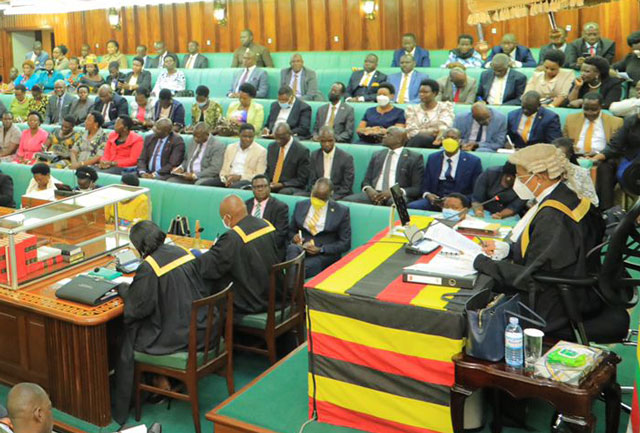
EALA POLLS: Why some losers are threatening to go to court
COVER STORY | AGATHER ATUHAIRE | The declared results of the election of Uganda’s representatives in the East African Legislative Assembly (EALA) held on Sept.29, show the candidates polled as follows: Rose Akol (422), Namara Dennis (415), Kakooza James (405), George Odongo (403), Musamali Paul (401), Mugenyi Mary (367) all NRM, Independent candidates: Kadogo Veronica Babirye (383) and Amongin Jacqueline (338); and DP’s Siranda Gerald Blacks (233).
The rest of the candidates polled; Kaija Harold Scandrone (FDC, 99); Ebil Fred (UPC, 139); Kateregga Mohamed (Jeema, 36), Agaba Gilbert (210); Ategeka Moses (4); Bukyana Julius (8); Bwengye Lauben Muhangi (5), Kapyata Dennis (9); Kiryowa Stella (27); Lolem Josephine (11); Kisembo Ronex Tendo (6); Luyinda Fred (5); Murangira Ambrose (181); Muwonge Mugwanya Daniel (4), Muyinda Allan Stanely (4);Namara Patience Tumwesigye (35); Nakitende Salaama Adelaide (6);Rwandarugali Phiona (23); Tindyebwa Joseph (22).
Basing on these vote tallies, several important observations have been made. The first is that the first nine candidate names, which have the highest number of votes match exactly the first nine names on the ballot paper.
But several observers are questioning this. They say it is as if the designer of the ballot paper knew exactly who the nine successful candidates would be. The only other plausible conjecture being that the MPs who voted were automatons who simply scrolled down the ballot and ticked first names first. Is this a coincidence or something with an unclear causal connection? Many say someone knew exactly who would win and who would lose.
The results also showed that 495 ballots were cast. Of those, 478 were valid, meaning they had nine ticks against names of any nine candidates. Any ballot paper with less or more ticks was considered invalid.
That means that the sum of all votes cast in the exercise should have been the nine ticks multiplied by the 478 valid ballots. That gives a total of 4,302 votes. But adding up all the votes declared to parliament by Speaker Anita Among for each of the 28 candidates adds up to 4,201. Up to 101 votes supposedly cast that day are lost. The question many are asking is where are the missing 101 votes?
Those alleging rigging say there is no way 495 ballots could have been cast that day because that would exceed the number of eligible voters. According to the record, there are 525 MPs who are eligible voters in parliament. Of these, the opposition National Unity Platform (NUP) has 57 members and they all boycotted the elections. That leaves 468 eligible voters.
Then there is also information that about 28 MPs were not in the country with some of these in Israel where they are attending the All Nations Convocation 2022. That would leave 440 eligible voters.
There are also other MPs who did not attend that day’s session because of other pressing engagements. One MP told this reporter she did not vote because a relative died. All this, according to those alleging rigging, means that there is no way the 495 MPs could have been available to vote for the EALA MPs on Sept.29.
On voting day in parliament, Aringa South MP Alioni Yorke Odria (NRM) stormed Parliament with a ballot box containing alleged pre-ticked ballots. He caused commotion shouting about rigging going on before voting started and as the candidates were still campaigning inside parliament. He was, however, told that Speaker Anita Among had allowed some MPs on official assignments to vote early. She did not say who the MPs were or their number.
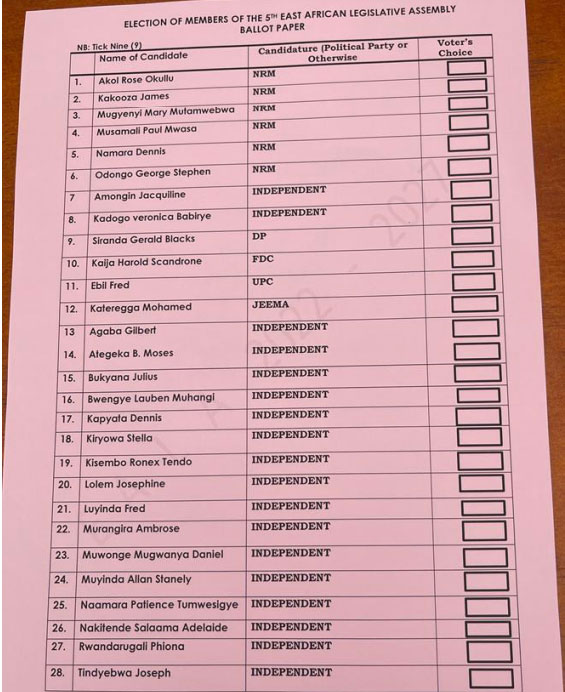
When Odria caused chaos, Tayebwa who was at that time chairing the session of the open campaigns by candidates read out the names of the 24 MPs. But Odria and other sources say the votes that were already ticked in the boxes were way more than 24.
Museveni, Speaker Among moves
President Yoweri Museveni who is the chairman of the ruling party NRM on July 08 cleared the six incumbent members of the East African Legislative Assembly (EALA) from his party to get another term. Speaker Among backed that.
On that list, Museveni included another candidate who was not of NRM; Gerald Siranda, the Secretary General of the Democratic Party led by Norbert Mao who cut a deal with Museveni that was announced in July. At the same event at State House, Museveni directed the NRM MPs to vote an independent MP and any other opposition MP outside of NUP and FDC.
It is said that as voting day approached, there were disgruntlement among NRM members of parliament who said Museveni’s directive deprived them of getting money from the EALA candidates. Some of them reportedly threatened not to vote as directed.
Ensuring that the EALA elections ran smoothly fell on Anita Among, the Speaker of Parliament. It is said that is why, a day before the election, on Wednesday Sept 28, parliament organised a dinner for the MPs. The official reason was to thank the MPs for a job well done during the first meeting of the second session of the 11th Parliament. But it is said the NRM EALA candidates threw some money at the event.
Election day proper was a busy one for Speaker Among. She had not chaired Parliament for two weeks leaving it to her deputy, Thomas Tayebwa. It appears she returned to preside over the voting exercise. On the voting day, September 29, Tayebwa chaired the first session of plenary where the Human Organ Donation and Transplant Bill, 2022, was swiftly passed.
Speaker Among took over at 11am to commence the EALA election exercise. She left as the candidates were campaigning. Tayebwa chaired these. Speaker Among returned later to declare results. This frantic back and forth changes have prompted several questions. Why could Speaker Among not chair a whole session? Why was she darting in and out? If she was busy with other business, why did she not allow Tayebwa to chair all sessions?
Many commentators say every vote matters to Museveni, and Speaker Among wanted the record to show the President that she is the one who presided over the important vote. Others say the Speaker could have had outcomes she is keen on, including who is elected and who is not.
Speaker Among had been approached about such scenarios. According to sources in Parliament, candidate Gilbert Agaba had petitioned the Speaker not to interfere with the election. Speaker Among was reportedly not amused. Some MPs supporting Agaba who had heard this rumour in the corridors asked him to apologize to her before the elections but he said he had nothing to apologize about.
Agaba would later tell this reporter that what Among calls abusing is a message he sent her via WhatsApp after he had heard she was calling MPs and telling them to vote for certain candidates. He said he was asking her politely to treat all candidates equally.
The message which this reporter saw reads: “Good morning Rt. Hon. Speaker. This is Gilbert Agaba (EALA aspirant). I am kindly requesting you to allow us a fair ground during these EALA campaigns. As a Speaker of Parliament, we are all your people. Kindly treat us equally.”
When the ballot paper emerged, each candidate name was in a separate row. But Agaba’s name was squeezed in a single row with another candidate. He lost the vote. And he blames Among. “There were many maneuvers to have me off the ballot but when these failed they resorted to other means,” he says.
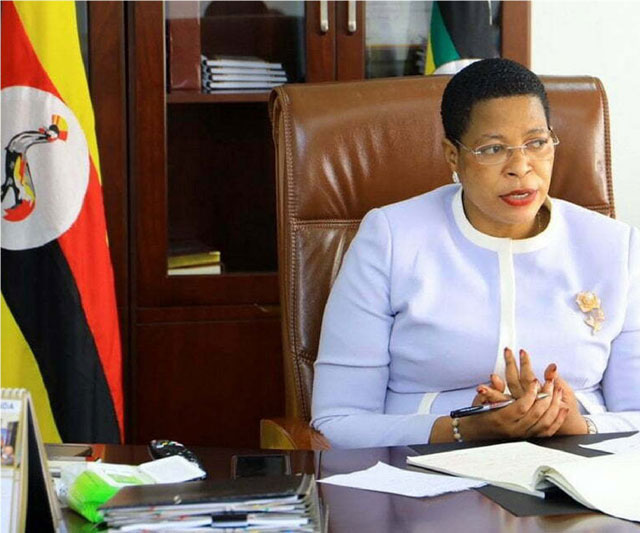
Court action threatened
It now appears that allegations that the EALA elections were rigged are not about to die out and Speaker Anita Among has to explain to convince the dissenters. Some individuals; including an MP, have threatened to go to court to annul the election.
According to these people, there has been an attempt to clean up the mess by erasing the evidence. Some evidence, including the results declared in parliament will be difficult to erase. It is said that the register which was used where even the MPs who were absent were ticked as having voted was destroyed and a new one compiled. Sources also say some ballot papers were destroyed and those which were pre-ticked by one person with the same handwriting were destroyed and others printed and different people got to tick them.
Candidates were not given any results declaration forms but heard about their fate from the figures read by the speaker. These figures were also captured and reported by the media. Now, it is alleged, the declaration form containing the results is also said to have been destroyed and one with numbers that match those that voted introduced.
At the end of the exercise, a list of nine members; six NRM official candidates, two independents (Jackline Amongin and Veronica Kadogo) who were NRM MPs in the previous Parliament and Gerald Siranda of DP, which entered into union with NRM a few months ago, were announced as winners.
The election of representatives to EALA is governed by Article 50 of the treaty that establishes the East African Community. The article provides thus;
“The National Assembly of each partner state shall elect, not from among its members, nine members of the assembly, who shall represent as much as it’s feasible, the various political parties represented in the National Assembly, shades of opinion, gender and other special interest groups in that partner state…”
Several Ugandans have gone to court before to compel Parliament to comply with this article. They include the late Speaker Jacob Oulanyah, the current Speaker Anita Among, outgoing EALA MP, Mukasa Mbidde, and Bugweri MP, Abdu Katuntu.
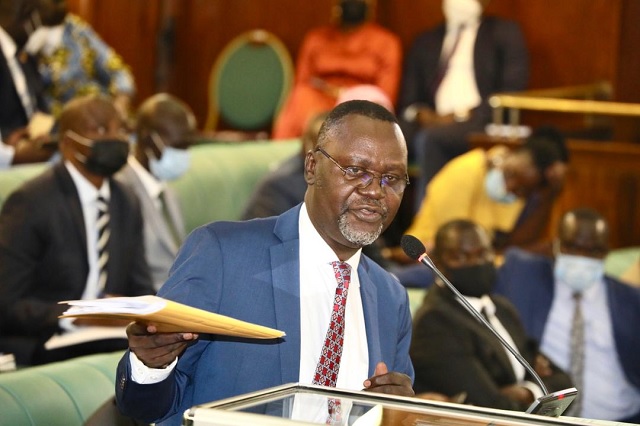
Katuntu and Among’s cases arose from the boycott by their former party; the Forum for Democratic Change (FDC) in 2012, which argued that the article meant that all the political parties represented in Parliament must have a representative in the regional Assembly.
In the Anita case, the East African Court of Justice on November 29, 2013 ordered the Republic of Uganda to cause the amendment of its 2012 Rules of Procedure of election for EALA Members to bring it into conformity with similar rules of the EAC Treaty.
At the time, Uganda’s Rule 13 (1) of the procedure of the Parliament of Uganda stated: “The election of members to the Assembly representing the various political parties and organisations represented in parliament, shade of opinion, gender and other special interest groups in Uganda shall be consensus by the political parties and other members of parliament.”
Significantly, the East African Court of Justice ruled that “matters revolving around the election of members of the EALA conducted by the Parliament of Uganda and questions related thereto are within the ambit of Article 52 of the Treaty and have to be dealt with by the competent institutions of the Republic of Uganda. Under Articles 77 and 78 of the Constitution of Uganda, that jurisdiction is deposited in the High Court of Uganda.”
This ruling has empowered NRM to decide who takes all the 9 slots.
In 2017 when FDC decided to return to the race with Ingrid Turinawe and Florence Ibbi Ekwau as their candidates, the NRM MPs who are by far the majority heckled them and instead voted for UPC and DP candidates; Chris Opoka and Mbidde respectively who had sought a second term.
This time, the largest opposition party NUP appears to have read the trend and boycotted the EALA elections. “EALA has been hijacked by NRM which now decides all the 9 representatives,” it said.
After the messy elections of Sept.29, the NUP Secretary General David Lewis Rubongoya said they had been vindicated.
“The challenge with EALA is that Gen Museveni and his people are abusing the process like they do every process and institutions.” Rubongoya said when he was hosted on the show “Focus on Parliament” on Civic Space TV in the run up to the elections.
“When you look at article 50 of the treaty, it talks about the shades of opinion represented in Parliament but what the NRM decided to do, which is irregular, is to give themselves 6 slots and say that the entire opposition takes two. But even with those two, they (NRM) are the ones that decide who takes them. They use their numerical strength in Parliament, which they acquired through rigging, to abuse all the other processes including EALA elections.
Right now Gen. Museveni essentially chooses all the nine representatives and that’s why we cannot be party to this,” he said.
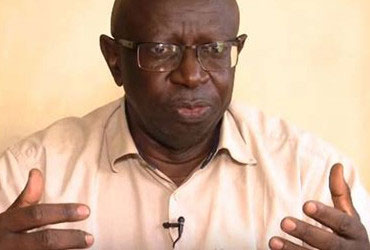
Lawyer and former EALA MP Wandera Ogalo warned that Parliament must avoid the mistakes that led to the collapse of the former East African Community in 1977.
“In Constitutional Petition No.28 of 2006 Jacob Oulanyah Vs Attorney General, Jacob Oulanyah (RIP) complained that he intended to stand as an independent but that was not provided for in the rules. So he joined NRM to enable him contest and lost.
He therefore filed the petition majorly on the ground that the rules did not provide for independents. In nullifying the election of the nine EALA members (myself inclusive) the Court stated; ‘It is clear that diversity is the hallmark of EALA under the Treaty.’ The wording of Article 50(1) emphasizing ‘other shades of opinions’ could not be clearer” per Hon A.E.N MPAGI BAHIGEINE JCC.”
Ogalo says the main reason why the former EAC collapsed in 1977 are captured in the current East African Community’s treaty preamble. He says the main reasons were lack of political will and lack of strong participation of the private sector and civil society in the cooperation activities.
He warned that the Uganda Parliament must ensure that the results of the EALA election reflect strong participation of civil society and its own strong political will to integrate.
He added that it is quite unfortunate that while the Constitution provides for the Opposition in Parliament, in the outgoing EALA (2017-2022), the voice of the official Opposition has been missing for the last five years.
“According to the Electoral Commission, in the 2021 elections President Museveni received 6,042,898 votes while Mr Kyagulanyi aka Bobi Wine received 3,631,437 votes. A significant number of Ugandans preferred his policies to those of President Museveni and their opinions on integration of East Africa can’t just be wished away. His party has to be on the table.” Ogalo adds that all indications are that the official opposition in Uganda will not be in the next EALA.
“For the second time due to what the National Resistance Movement regards as strategic voting but in reality something else,” he says.
He adds that for another ten years, a significant voice will not be heard in the integration process yet Article 50(1) requires as much as possible political parties represented in Parliament.
Ogalo asks: “Surely how can it be seriously said that there is compliance with the Treaty if the official opposition has no members in EALA? Where is the diversity which the Constitutional Court held is a hallmark of EALA? Why then should we expect that what befell the First Community will not come to pass again?”
 The Independent Uganda: You get the Truth we Pay the Price
The Independent Uganda: You get the Truth we Pay the Price
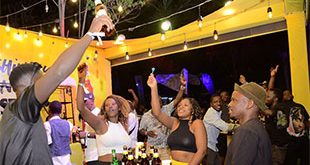


The Ugandan Opposition parties are still weak.